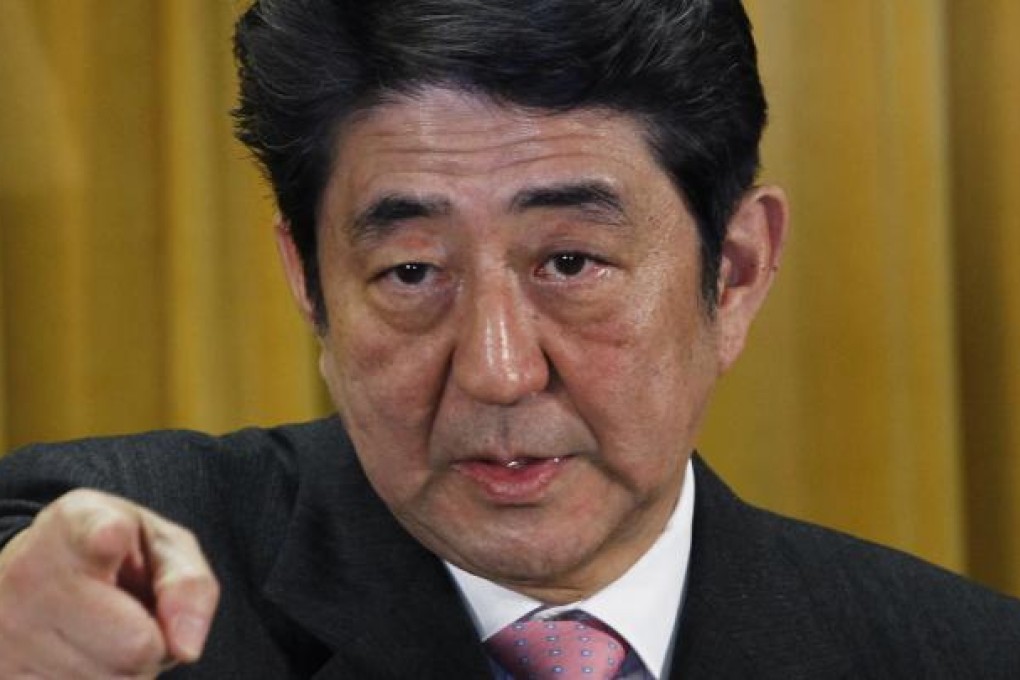Abe must get past island dispute rhetoric and fix Japan's economy

Japan's landslide election result is a reminder that the more things change the more they can remain the same. The Liberal Democratic Party returns to power after a rare spell out of office. Recycled prime minister-elect Shinzo Abe re-inherits an economy still mired in deflation and stagnation. And nationalistic tensions with China and South Korea remain a worrying distraction from mutual interests.
But Abe's election does mark a new page in Japan's relations with its neighbours and former wartime enemies - now its biggest and third-biggest trading partners - with China having just settled on a once-in-a-decade change of leadership and South Koreans going to the polls today to elect a new president.
Leadership change does bring uncertainties but they will become clearer when Abe shows his hand this time around. He did try hard to improve ties with China during his previous term in office, in 2006-07, including a visit to Beijing. But his hawkish post-victory rhetoric about Tokyo's claim to a chain of disputed islands in the East China Sea has caused concern over which direction Japan will take. That said, the election result reflected a resounding rejection of the Democratic Party of Japan rather than rising nationalist sentiment over China's competing claim to the islands.
Hopefully, the promise of a bolder approach to Japan's economic problems is a better indication of the focus of his administration. He now says it was a mistake to back higher interest rates in 2006. This time he is pushing the central bank to adopt a more aggressive monetary policy to create inflation expectations, weaken a strong yen and stimulate business investment. He has proposed that the bank set an inflation target of 2-3 per cent, compared with the present 1 per cent. In this regard he will soon have a chance to influence cautious thinking at the Bank of Japan when its governor and two of his deputies retire.
Since 2007 the Nikkei has plunged by about half while the yen has soared by around 40 per cent to the US dollar. Austerity in Europe and tensions with China have weighed on exports. Hurdles to a sustained recovery include a massive public debt and an ageing population. Rhetoric may keep nationalist sentiment on side, but action on the economy is key to his popularity. Maintaining cordial relations with China is important to economic goals, as the recent slump in exports has shown. While leadership change may bring uncertainties, it should also be seen as a new beginning.
